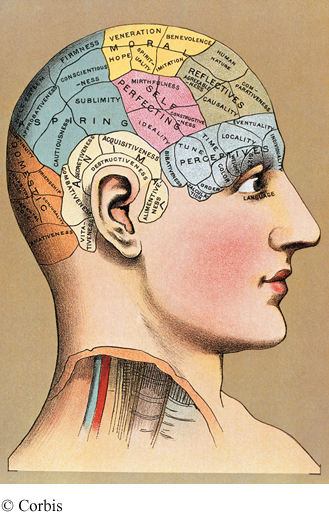Chapter 8 Introduction
8

Personality Theories and Assessment
Freudian Classical Psychoanalytic Theory of Personality
Neo-
The Humanistic Approach to Personality
The Social-
Trait Theories of Personality
Personality Assessment
personality A person’s internally based characteristic ways of acting and thinking.
As with intelligence, psychologists cannot agree upon a definition of personality, a word that we all use and whose meaning we think we know. In its everyday usage, personality is an individual’s characteristic ways of acting and thinking. If I asked you to describe the personality of your best friend or your mother, you probably would respond with a set of adjectives that capture the defining characteristics (prominent qualities) of that person’s behavior, such as caring, independent, and honest. You would also probably assume that these behavioral characteristics originate from within the person, that they are internally based. For our purposes, this is a satisfactory definition of personality—a person’s internally based characteristic ways of acting and thinking.
Psychologists call such internally based characteristics “personality traits.” Each trait corresponds to a continuum on which one end is the behavioral extreme for that characteristic and the other end is its opposite. For example, the extremes for caring would be “very caring” and “very uncaring.” These trait dimensions are the building blocks of personality. Individuals’ personalities correspond to their patterns of traits, leading to personality differences between people. But what causes these differences? What makes us the way that we are?
Throughout history, all sorts of theories of personality differences have been proposed. For example, the ancient Greeks thought that one’s mental health (personality) was a function of the balance of four humors, or bodily fluids—

Today, there are many theoretical approaches to the study of personality, but we will limit our discussion to the four major types of theories—
Three of these four theoretical approaches also focus on problems in personality development; they have thus led to the development of therapies (based on the theories) to treat such problems. The prime example is psychoanalysis, developed by Freud; the humanistic approach and the social-
The trait approach is not a therapeutic approach; it is more of a descriptive approach to personality. Its primary aim is to identify the set of traits—